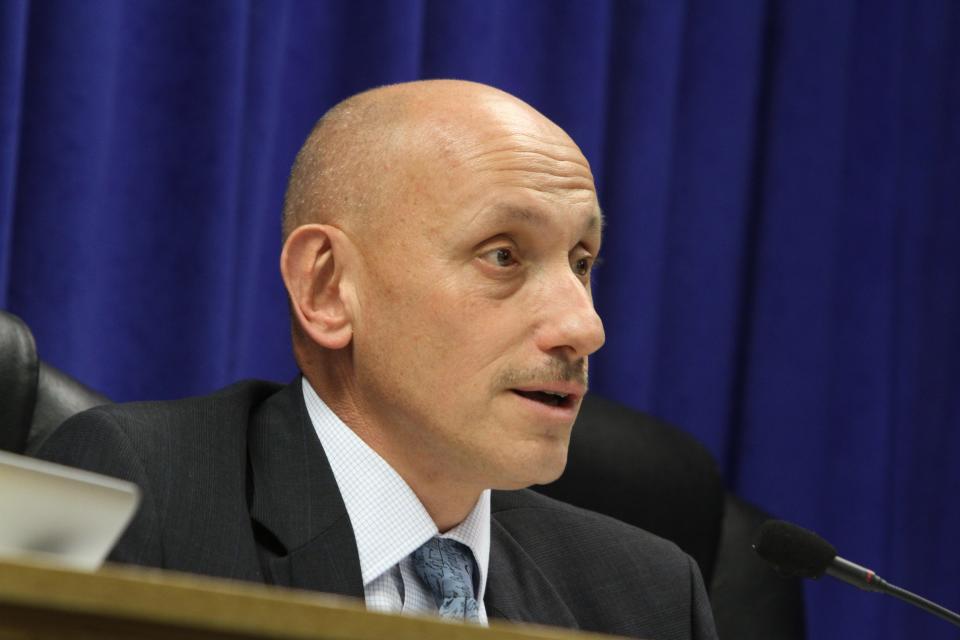With House and Senate OK, push is on to improve mental health of youngest children
PROVIDENCE — The House and Senate have passed legislation establishing a task force aimed at improving the mental health of some of Rhode Island's youngest children.
The task force will be charged with drafting "a state plan to improve the promotion of social and emotional well-being of young children as well as screening, assessment, diagnosis and treatment of mental health challenges in currently covered Medicaid mental health services for infants and young children under the age of six," according to the Senate bill.
The bill states that about about half of the state's children younger than 6 are covered by Medicaid and would be eligible for help.
"Addressing mental health for all Rhode Islanders has been and continues to be a priority," Sen. Lou DiPalma, one of the legislation's champions, told The Journal in an email. "It is paramount we address any/all mental health challenges early in a child's development."
"We know that ensuring a child receives proper nutrition during these early years of life is critical to their lifelong physical health, which is why we have programs like WIC and SNAP," Sen. Alana M. DiMario, a licensed mental health counselor, told The Journal. "We also know that intervening early with physical and speech development is crucial to successfully building those skills, which is why we have programs like Early Intervention. Integrating a young child's social and emotional development into our best practices for getting Rhode Island's kids off to the best possible start in life is another key piece of that foundation...
"The goal is to build on the systems we already have to catch where these needs exist, make sure the providers in the community know how best to intervene with the child and their caregiver, and ensure we have the correct Medicaid reimbursement to make it happen."

A mounting body of research shows that the developing brain is susceptible to trauma and stress, sometimes with lifelong consequences — but early treatment can improve outcomes.
RI Association for Infant Mental Health to be key player
"It’s hard to imagine that very young children, sometimes even before they can talk, can and do experience mental health challenges ... which can be related to trauma, neglect, biological factors, and/or environmental conditions," Rhode Island Association for Infant Mental Health executive director Susan Dickstein, an associate professor at the Warren Alpert Medical School of Brown University, wrote in an email to The Journal.
"These experiences impact the rapidly developing brain and can have negative consequences in all areas of the young child’s development. We know that prevention and early intervention practices that promote nurturing relationships can address infant/early childhood mental health concerns, and can facilitate healthy brain development."
The Rhode Island Association for Infant Mental Health is one of several organizations, along with experts from many fields, that will comprise the task force.
Care can be difficult to find
Accessing care particularly during the COVID pandemic has been difficult for many families, as Rhode Island Kids Count documented in May with the release of its annual Factbook report.
The task-force legislation agrees, stating "in Rhode Island, approximately fifty percent [50%] of infants and young children have Medicaid health coverage which covers screening, evaluation, diagnosis, and treatment for children’s mental health needs starting at birth. Data from 2018 indicate that less than eight percent [8%] of the Medicaid population under age six [6] received any mental health services."
The bill also states that "It is essential to treat young children’s mental health challenges in the context of their relationships within families, homes, and communities. The emotional well-being of young children is directly tied to the functioning of their parents/caregivers and the families in which they live. Thus, successful mental health treatment for young children involves working to build and strengthen consistent, supportive relationships within their families and community."
Following Senate approval, the House passed the legislation on Thursday, the last day of this session of the General Assembly. The bill now awaits Gov. Dan McKee's decision.
This article originally appeared on The Providence Journal: Bill passes to improve mental health of RI's youngest children

